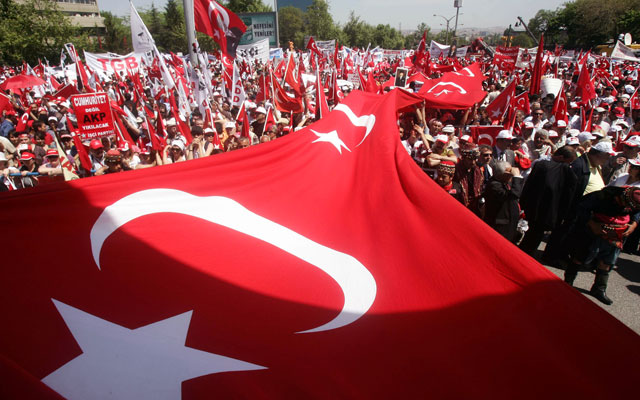Western bewilderment over a potential Chinese long-range ballistic missile and air defense system in Turkey has turned to skepticism and worry.
Turkey—a NATO member—is working on an agreement to produce this system in collaboration with China Precision Machinery Import and Export Corporation (CPMIEC), a state-owned arms manufacturer on which the U.S. placed sanctions in 2003 and February 2013 for illegally selling arms to Iran, North Korea, and Syria.
There are also more pressing concerns that could arise if Turkey resists NATO’s request and continues to pursue Chinese missile technology.
Members of Congress urged the Obama Administration to pressure Turkey to abandon its partnership with CPMIEC, expressing concern that China may exploit the system to strip classified data from NATO’s missile network.
NATO defense officials have decried the Chinese system as a “virus” and have declared that such a system would be incompatible with existing NATO missile capabilities and thus degrade the effectiveness of NATO’s missile defense shield. NATO Secretary-General Anders Fogh Rasmussen has also warned Turkey that any procurement it makes must be compatible with current NATO systems.
Turkish officials have claimed that the proposed system will be compatible with existing systems and that they are pursuing the Chinese bid because it is less expensive, has the potential to be co-produced, and allows for technology transfer—something of great importance to the development of Turkey’s defense industry.
Choosing the system offered by CPMIEC cannot be considered good defense policy. Turkey needs a ballistic missile defense system, especially with the growing number of ballistic missile threats in the region, but potentially making the rest of NATO vulnerable to ballistic missile attack is not the solution.
It is unclear if China is trying to drive a wedge between Turkey and NATO or Turkey and the U.S. or is attempting to diminish NATO’s effectiveness. If Turkey weighs the short-term gains associated with the Chinese bid versus the long-term gains associated with NATO compatibility and security, it would realize that choosing a system more compatible with NATO has the likelihood of producing greater benefit.
Matthew Rolfes is currently a member of the Young Leaders Program at The Heritage Foundation. For more information on interning at Heritage, please click here.























